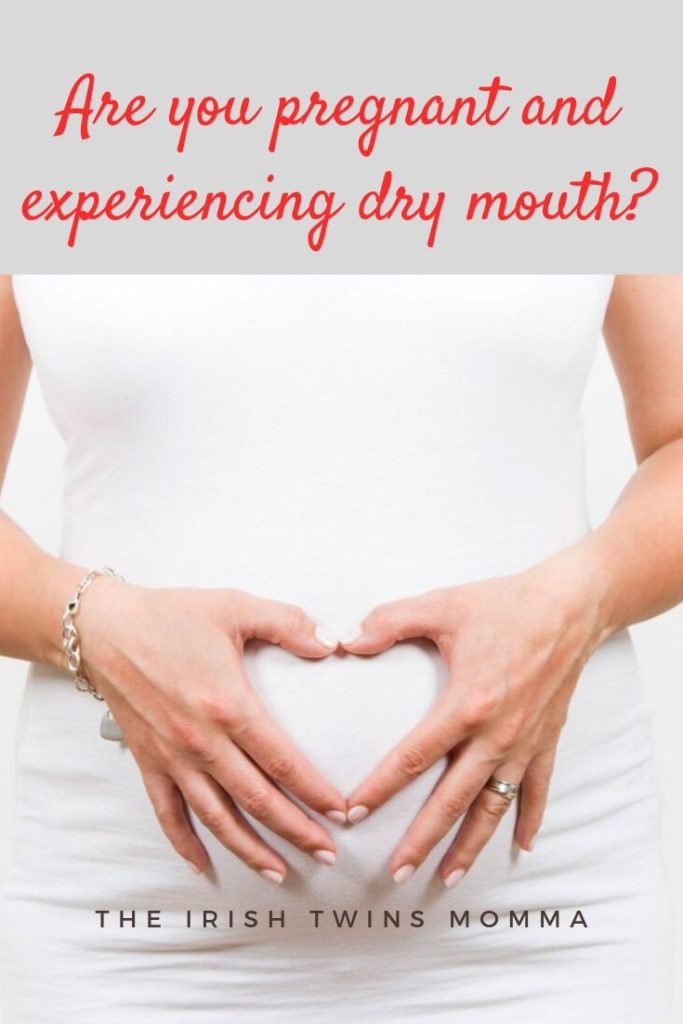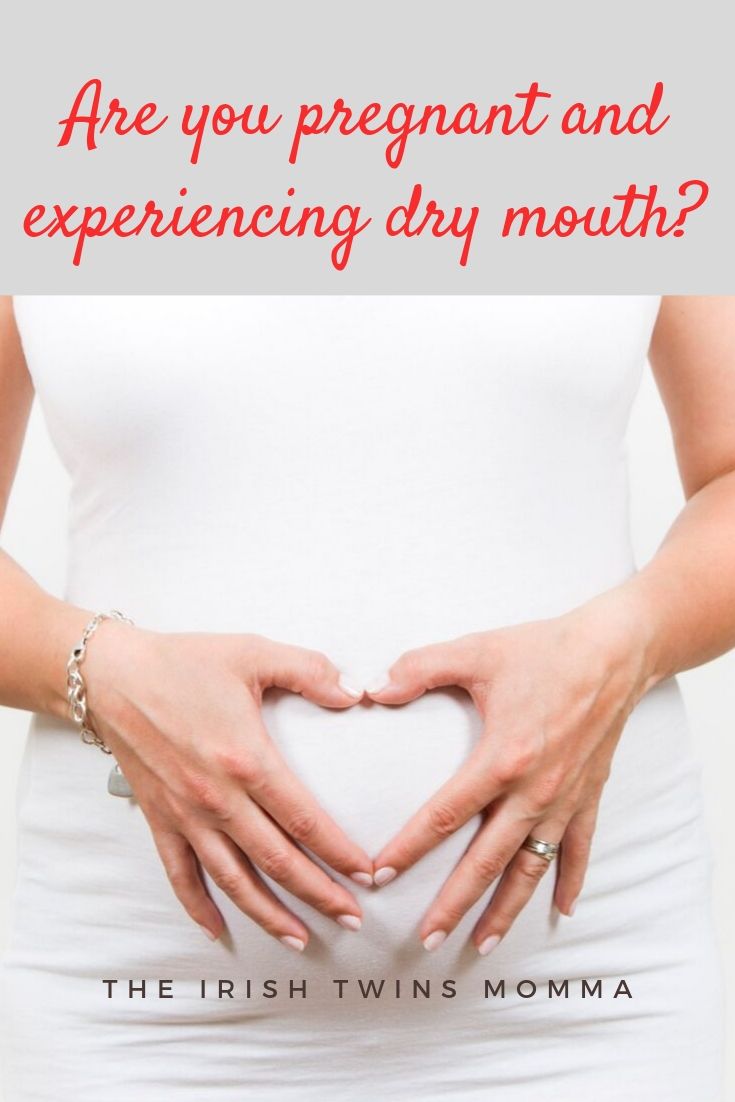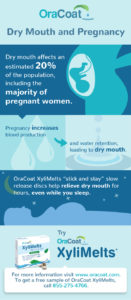This post contains affiliate links. If you click and buy, I may make a commission, at no cost to you. See my disclosure policy for more information.
Would it surprise you to find out that up to 20% of people suffer from dry mouth during pregnancy? Well, it’s true.
Everyone knows pregnancy is a time of excitement and total bliss, but it can also be a not-so-fun time of uncomfortable dry mouth symptoms for some expecting mothers. Standard symptoms include a constant sore throat, trouble speaking, tooth decay, and more.
The truth is dry mouth is actually very common during pregnancy and typically occurs during the first trimester (weeks 1-12). Oh—and if you’re wondering why your mouth feels extra dry when you wake up, it’s because symptoms worsen at night.

So, what causes pregnancy-related dry mouth?
Let’s get right to it: dry mouth happens during pregnancy for several different reasons. Below are some of the most common causes:
Increased blood production
To accommodate the growing body, women in pregnancy produce more blood than women who are not pregnant. When there is more blood traveling through the body, more water is retained, causing dry mouth. Not to mention, the body excretes more of its fluids when there is an increase in blood production, making dry mouth symptoms worse.
Gestational diabetes
Gestational diabetes is a form of diabetes (high blood sugar) that only occurs in pregnant women. It’s a result of the body not being able to make enough of the hormone insulin, which is in full demand during pregnancy.
Thrush
Candida albicans—more commonly known as yeast—is a fungus found in all bodies, pregnant or not. Thrush develops when there is an overgrowth of yeast, and that’s what causes a dry, “cottony” feeling in the mouth.
Other causes include:
- Sleeping problems
- Side effects of medication
- Increased metabolism
- Changes in hormones
- Dehydration
Symptoms
- Constant sore throat
- Trouble swallowing
- Dryness inside the nose
- Burning feeling in the throat or mouth
- Trouble speaking
- Change in speaking (hoarseness)
- Change in sense of taste
- Tooth decay
- Headaches
- Metallic taste in the mouth
- Hot flashes
- Abdominal discomfort
- Dry, cracked lips
Are there other health issues linked to dry mouth during pregnancy?
In addition to gestational diabetes, experiencing dry mouth can indicate some other conditions, including a common blood disorder called anemia and high blood pressure.
If you’re pregnant and experiencing dry mouth, you should always talk to your physician even if the symptoms appear subtle and aren’t causing any pain.
Helpful tips for finding dry mouth relief right now
There are many ways to temporarily relieve uncomfortable symptoms. Below are a few popular remedies that may help:
- Chew sugar-free gum to stimulate saliva
- Practice good oral health habits – don’t forget to floss and brush!
- Eat a balanced and nutritious diet – try skipping spicy and acidic foods.
- Sleep with a humidifier at night
- Drink more water or suck on ice chips to keep your mouth moist
- Avoid mouthwashes with alcohol
How OraCoat® XyliMelts® can help*
Along with the remedies above, products such as XyliMelts discs are a safe and effective solution for dry mouth, providing long-lasting relief day and night. XyliMelts are designed with adhering-disc technology that stays in place for hours and helps increase moisture in the mouth. There are many benefits to using XyliMelts to fight off dry mouth symptoms:
- Can be used while sleeping
- No effects on talking or appearance during daytime use
- Increases saliva**
- Freshens breath
- Lasts for hours
- Coats, moisturizes, and lubricates**
*Always speak with your physician before starting treatment for the dry mouth with OraCoat XyliMelts or any other saliva substitute.
**These statements have not been evaluated by the Food and Drug Administration. This product is not intended to diagnose, treat, cure or prevent any disease.
MEET OUR CONTRIBUTOR:

Cathy Tomlinson Wood believes modern dentistry can impact every part of patients’ lives, helping them achieve a beautiful smile while staying healthy. Cathy attended Detroit Mercy and Wayne State Universities, earning a dental hygiene degree and a Master’s degree in education. She currently works alongside Dr. Keith Kelley at A Center for Family Dentistry in Troy, Michigan



Amanda
I love love love that you featured this article! (Maybe partly because I’m a dental hygienist too!)
This is such valuable info for expectant mamas!